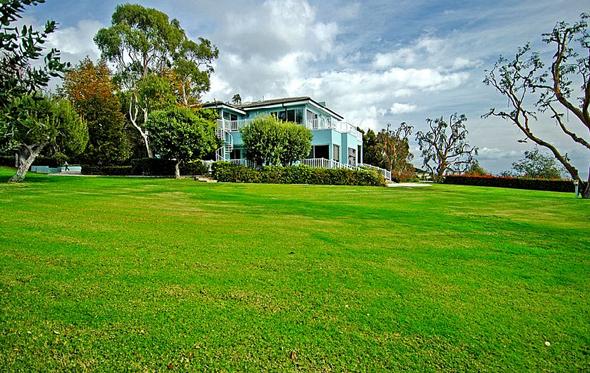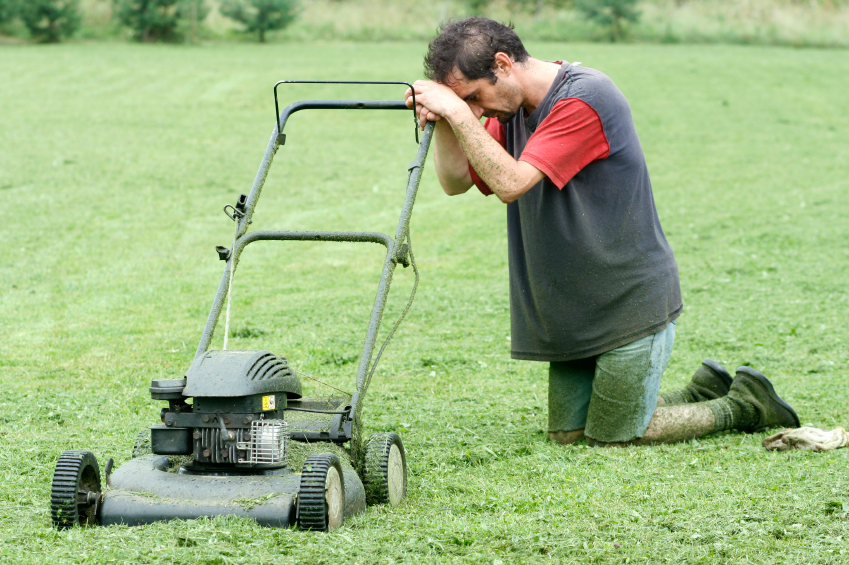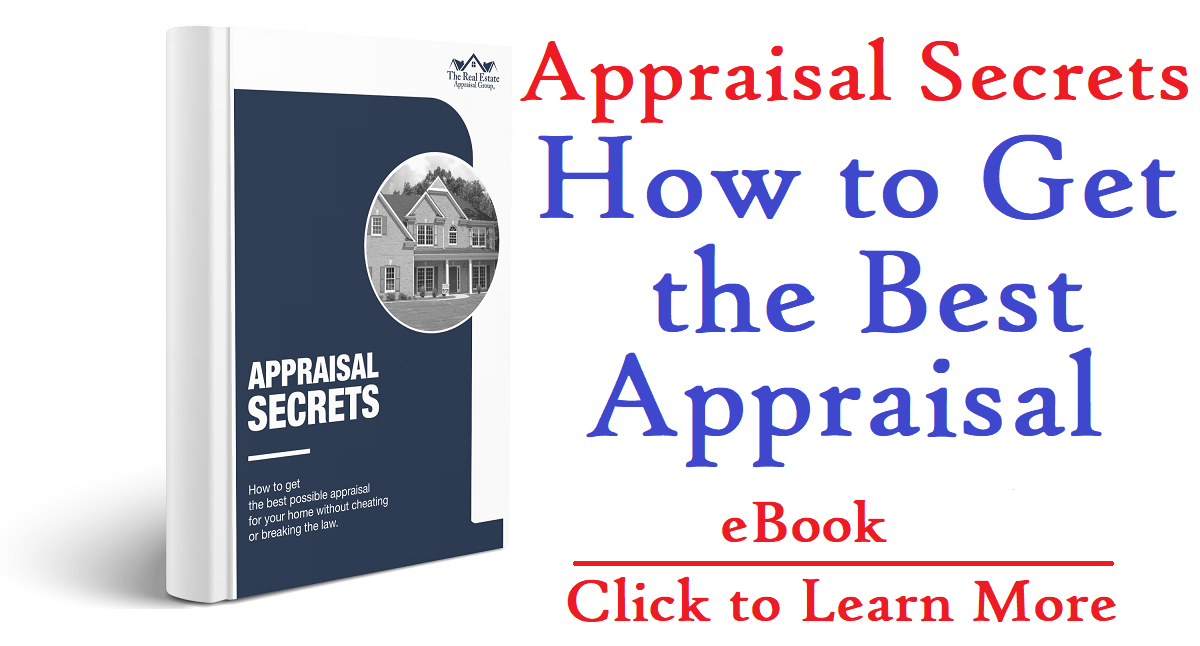Most people would assume that the larger their lot, the more it’s worth. Surprisingly, that’s not always true.
In fact, it may not even increase the value at all.
To explain this clearer, let’s say you have a beautiful home on a 1-acre lot in Maryland with a water-front view. Your house, backyard, garage, garden, and basically everything you need to live comfortably sits on half an acre of that land.
So now you’ve got this extra half-acre of land to the left of your house that’s just sitting there. It takes some maintenance to keep this extra land, and an even longer time to mow the yard. Suddenly, your family has an idea:
“Why don’t we sell just a portion of our property to someone else? We don’t really need it anyway.”
It’s a great idea. You call up a real estate appraiser to come and check out your property, only to get some bad news. Apparently, Maryland requires a lot to have an area of at least 3/4 acres. And you only have 1/2 an acre to spare.
We real estate appraisers call this surplus land. Here’s the definition from the Real Estate Appraisal Dictionary (Fifth Edition):
“Land that is not currently needed to support the existing improvement but cannot be separated from the property and sold off. Surplus land does not have an independent highest and best use and may or may not contribute value to the improved parcel.”
Since you’re a 1/4 of an acre short, zoning doesn’t allow you to split your land into multiple lots.
You’re stuck with this extra land, and will indeed spend a lot of extra time mowing your huge lawn.
But lets say, hypothetically, that the state of Maryland only required a lot to have an area of 1/2 an acre. Now you have what we call excess land. Here’s the definition:
“Land that is not needed to serve or support the existing improvement. The highest and best use of the excess land may or may not be the same as the highest and best use of the improved parcel. Excess land may have the potential to be sold separately and is valued separately.”
If this were the case, then you and your family can sell a part of your lot, because zoning would allow you to sub-divide your land.
Take a look at this picture. In the subject’s lot, we can see the house and driveway clearly in the bottom of the picture- we can also see the huge chunk of extra land above it. Since there are no zoning conflicts, whoever owns this lot would be able to sell all of the excess area land, and still own the subject’s site.
If a property has excess land, a real estate appraiser is required to describe it in the appraisal, but not assess it’s value independent from the subject property. Ultimately, the only real difference is that excess land has the potential to be subdivided and sold, while surplus land does not. Obviously this makes excess land more valuable, but every property is different. Have you ever dealt with a property with lots of additional land? Let us know below, along with any questions or comments you may have.
 Jonathan Montgomery Founder and President of the The Real Estate Appraisal Group. He has been a real estate professional since 1998. He’s been a broker, an investor and as an appraiser. He enjoys working as an appraiser, doing real estate appraisals in Washington D.C., Southern Maryland, and Northern Virginia.
Jonathan Montgomery Founder and President of the The Real Estate Appraisal Group. He has been a real estate professional since 1998. He’s been a broker, an investor and as an appraiser. He enjoys working as an appraiser, doing real estate appraisals in Washington D.C., Southern Maryland, and Northern Virginia.
#treagroup #realestate





great article Jonathan but theres something I’m wondering. I once did a got a 2.3 or so acre property appraised where I knew zoning would let us subdivide since lots only needed to be half an acre, but the appraiser still called the rest of the property surplus land. How was that possible?
Thomas,
That’s a great question. There could be a number of other reasons that could cause the appraiser to believe that the rest of the property is considered surplus land. Maybe, the land did not appear to be buildable (steeply sloped, swamp)? I would need to know the specifics in order to determine the exact answer. However, it would be a good idea for the appraiser to explain their conclusions in your report. Thanks for the question
Thank you for explaining excess and surplus land. I just want to add to the discussion. In my area of the country, I have rarely ever seen a situation where a larger lot is not worth more than a smaller lot unless the utility of the smaller lot is better than the larger lot as a result of slope, shape, etc… People in my area love a large lot to mow, privacy, have parties, and show off to their friends. As for excess land, that is the one of the most difficult appraisals that an appraiser can do. Extreme detail is required in highest and best use of excess land and the appraisal analysis. I know that for some appraisals, like FHA, the appraiser describes the excess land but does not value it as you stated. However, for most appraisal situations, appraisers need to value the excess land to it highest and best use. Since it is usually difficult to find a similar house with a similar excess site, the appraiser must use other methods to value the excess land. Usually what that means is estimating the retail value of the extra site and measuring the discount that the market requires for the entrepreneurial incentive and all of the costs of subdivision.
Gary…you bring up a good point. Excess land appraisals are more complicated and require a strong analysis of of the market. It is very important for appraisers to provide more detail and explanation in those reports. Thanks for the feedback.
Let me ask you a question Sir. What if the surplus land is landlocked? The only egress could have been the adjacent lot owned by same owner however this property -located along the highway is improved by a 3-storey building hence physically blocking the possibility of introducing an improvement on the surplus land. In this situation, is it correct to conclude that the excess land has no value at all?
What about a house situated on 11 acres…. the house straddles a 4 acre parcel, the driveway and sand mound/septic take up another 1 acre and the 400 ft driveway splits the remaining 6 acres. Is all or some of this surplus v excess land? The land is currently not subdividable. Does this alter the value? How much land is subject to highest and best use?
Question. Does subdivision of the excess land need to be complete in order for it to be “excess land”? or just legally permissible/physically possible/financially feasible/maximally productive with potential for subdivision? My colleague is debating that the extra land doesn’t have “potential” to be sold off until it IS subdivided. I disagree and say as long as there is a potential to subdivide, it’s excess.